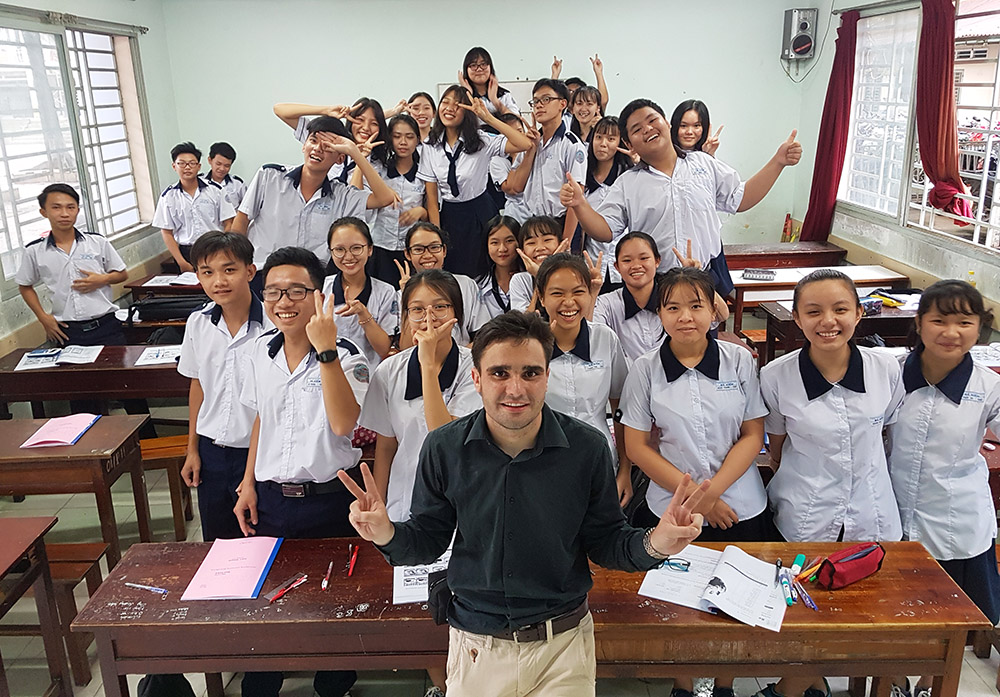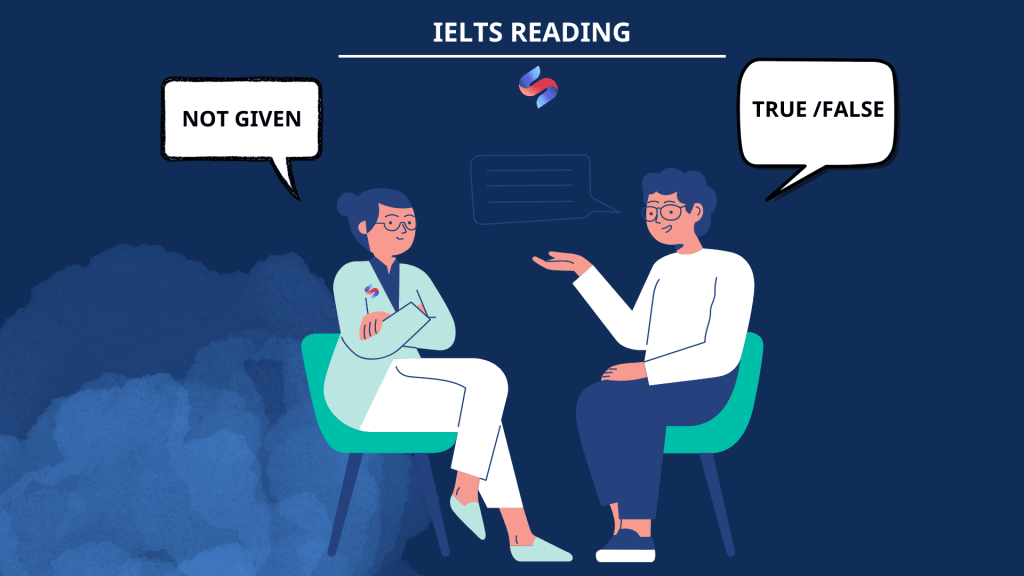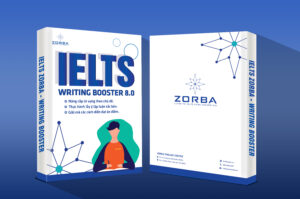
Nâng cấp từ vựng – IELTS Vocab Booster 2 – Test 2- READING PASSAGE 3
MAKETE INTEGRATED RURAL TRANSPORT PROJECT
Makete Integrated Rural Transport Project
Section A
The disappointing results of many conventional road transport projects in Africa led some experts to rethink the strategy by which rural transport problems were to be tackled at the beginning of the 1980s. A request for help in improving the availability of transport within the remote Makete District of south¬western Tanzania presented the opportunity to try a new approach.
The concept of’integrated rural transport’ was adopted in the task of examining the transport needs of the rural households in the district. The objective was to reduce the time and effort needed to obtain access to essential goods and services through an improved rural transport system. The underlying assumption was that the time saved would be used instead for activities that would improve the social and economic development of the communities. The Makete Integrated Rural Transport Project (MIRTP) started in 1985 with financial support from the Swiss Development Corporation and was co-ordinated with the help of theTanzanian government.
Section B
When the project began, Makete District was virtually totally isolated during the rainy season.The regional road was in such bad shape that access to the main towns was impossible for about three months of the year Road traffic was extremely rare within the district, and alternative means of transport were restricted to donkeys in the north of the district. People relied primarily on the paths, which were slippery and dangerous during the rains.
Before solutions could be proposed, the problems had to be understood. Little was known about the transport demands of the rural households, so Phase I, between December 1985 and December 1987, focused on research.The socio-economic survey of more than 400 households in the district indicated that a household in Makete spent, on average, seven hours a day on transporting themselves and their goods, a figure which seemed extreme but which has also been obtained in surveys in other rural areas in Africa. Interesting facts regarding transport were found: 95% was on foot; 80% was within the locality; and 70% was related to the collection of water and firewood and travelling to grinding mills.
Section C
Having determined the main transport needs, possible solutions were identified which might reduce the time and burden. During Phase II, from January to February 1991, a number of approaches were implemented in an effort to improve mobility and access to transport.
An improvement of the road network was considered necessary to ensure the import and export of goods to the district.These improvements were carried out using methods that were heavily dependent on labour In addition to the improvement of roads, these methods provided training in the operation of a mechanical workshop and bus and truck services. However the difference from the conventional approach was that this time consideration was given to local transport needs outside the road network.
Most goods were transported along the paths that provide short-cuts up and down the hillsides, but the paths were a real safety risk and made the journey on foot even more arduous. It made sense to improve the paths by building steps, handrails and footbridges.
It was uncommon to find means of transport that were more efficient than walking but less technologically advanced than motor vehicles. The use of bicycles was constrained by their high cost and the lack of available spare parts. Oxen were not used at all but donkeys were used by a few households in the northern part of the district. MIRTP focused on what would be most appropriate for the inhabitants of Makete in terms of what was available, how much they could afford and what they were willing to accept.
After careful consideration, the project chose the promotion of donkeys – a donkey costs less than a bicycle – and the introduction of a locally manufacturable wheelbarrow.
Section D
At the end of Phase II, it was clear that the selected approaches to Makete’s transport problems had had different degrees of success. Phase III, from March 1991 to March 1993, focused on the refinement and institutionalisation of these activities.
The road improvements and accompanying maintenance system had helped make the district centre accessible throughout the year. Essential goods from outside the district had become more readily available at the market, and prices did not fluctuate as much as they had done before.
Paths and secondary roads were improved only at the request of communities who were willing to participate in construction and maintenance. However the improved paths impressed the inhabitants, and requests for assistance greatly increased soon after only a few improvements had been completed.
The efforts to improve the efficiency of the existing transport services were not very successful because most of the motorised vehicles in the district broke down and there were no resources to repair them. Even the introduction of low-cost means of transport was difficult because of the general poverty of the district.The locally manufactured wheelbarrows were still too expensive for all but a few of the households. Modifications to the original design by local carpenters cut production time and costs. Other local carpenters have been trained in the new design so that they can respond to requests. Nevertheless, a locally produced wooden wheelbarrow which costs around 5000 Tanzanian shillings (less than US$20) in Makete, and is about one quarter the cost of a metal wheelbarrow, is still too expensive for most people.
Donkeys, which were imported to the district, have become more common and contribute, in particular, to the transportation of crops and goods to market. Those who have bought donkeys are mainly from richer households but, with an increased supply through local breeding, donkeys should become more affordable. Meanwhile, local initiatives are promoting the renting out of the existing donkeys.
It should be noted, however, that a donkey, which at 20,000 Tanzanian shillings costs less than a bicycle, is still an investment equal to an average household’s income over half a year This clearly illustrates the need for supplementary measures if one wants to assist the rural poor
Section E
It would have been easy to criticise the MIRTP for using in the early phases a ‘top-down’ approach, in which decisions were made by experts and officials before being handed down to communities, but it was necessary to start the process from the level of the governmental authorities of the district. It would have been difficult to respond to the requests of villagers and other rural inhabitants without the support and understanding of district authorities.
Section F
Today, nobody in the district argues about the importance of improved paths and inexpensive means of transport. But this is the result of dedicated work over a long period, particularly from the officers in charge of community developmentThey played an essential role in raising awareness and interest among the rural communities.
The concept of integrated rural transport is now well established in Tanzania, where a major program of rural transport is just about to start.The experiences from Makete will help in this initiative, and Makete District will act as a reference for future work.
- Giải thích từ vựng
- Mobility (n) /məʊˈbɪl.ə.ti/ tính chuyển động, tính di động; tính lưu động
Eg: Some neck injuries cause total loss of mobility below the point of injury.
- Tackle(v) /ˈtæk.əl/ xử trí, tìm cách giải quyết (một vấn đề, một công việc)
Eg: The president is clearly in a dilemma about how to tackle the crisis.
There is a great deal of indecision over how to tackle the problem.
- Approach (n) /əˈprəʊtʃ/ hướng tiếp cận, cách bắt đầu giải quyết, phương pháp bắt đầu giải quyết (một vấn đề)
Eg: Since our research so far has not produced any answers to this problem, we need to adopt a different approach to it.
Một số từ đồng nghĩa:
- attitude His attitude towards authority has often got him into trouble.
- outlook I wish I could share your positive outlook on life.
- frame of mind I need to be in the right frame of mind to talk about this.
- viewpoint His viewpoint is his own and does not affect how I think about the issue.
- point of view From a strictly financial point of view it looks like a positive change.
- Adopt (v) /əˈdɒpt/ chấp nhận và thực hiện
Eg: I think it’s time to adopt a different strategy in my dealings with him.
The new tax would force companies to adopt energy-saving measures.
- Underlying (a) /ˌʌn.dəˈlaɪ.ɪŋ/ dưới, ngầm, nằm dưới
Eg: And what might be the underlying significance of these supposedly random acts?
On the surface it’s a very funny novel but it does have a more serious underlying theme.
- Co-ordinate (v) /kəʊˈɔː.dɪ.neɪt/ điều hợp, phối hợp
Eg: We need someone to coordinate the whole campaign.
A number of charities are coordinating their efforts to distribute food to the region.
- Isolated (a) /ˈaɪ.sə.leɪ.tɪd/ cô lập
Eg: You have brought the resources of the modern world to that isolated village.
Not many people visit this isolated spot.
- Rare (a) /reər/ hiếm, hiếm có, ít có
Eg: The museum is full of rare and precious treasures.
Một số từ đồng nghĩa:
- unusual That’s an unusual name – where does it come from?
- uncommon It’s not uncommon (= it is common) for people to become ill when they travel.
- unconventional I had a very unconventional childhood.
- unique This is your chance to own a unique piece of jewellery.
- Restrict (v) /rɪˈstrɪkt/ hạn chế, giới hạn, thu hẹp
Eg: The government has restricted freedom of movement into and out of the country.
Having small children really restricts your social life.
The new guidelines have restricted opportunities for development on the edge of the city.
- Slippery (a) /ˈslɪp.ər.i/ trơn trượt
Eg: The road was wet and slippery.
The sidewalks were slippery with ice.
- Burden (n) /ˈbɜː.dən/ gánh nặng
Eg: My elderly mother worries that she’s a burden to me.
Buying a house often places a large financial burden on young couples.
The war had put an insupportable financial burden on the country.
- Implement (v) /ˈɪm.plɪ.ment/ thi hành, thực hiện đầy đủ
Eg: The determination of policy is not your business – your job is to implement it.
Local councils will be given some leeway as to how they implement the legislation.
- Carry out (phrasal verb) tiến hành, thực hiện/ kết thúc, hoàn thành một hành động hay một công việc nào đó
Eg: I was elected to carry out a program, the governor said, and I have every intention of carrying it out.
- Labour (n) /ˈleɪ.bər/ lao động/ nhân công
Eg: Farming has been mechanized, reducing the need for labour.
The older generation were bent double from decades of labour in the fields.
Society is challenging the traditional sexual division of labour.
- In addition to: bên cạnh cái gì đó, ngoài ra, thêm vào đó
Eg: In addition to providing free Internet access, the restaurant has very delicous foods.
- Short-cut (n) /ˈʃɔːt.kʌt/ đường tắt, cách ngắn hơn
Eg: The kids take a short-cut through the parking lot to get to school.
- Arduous (a) /ˈɑː.dʒu.əs/ khó khăn, gian khổ, gay go
Eg: In those days, a trip to the West was an arduous journey.
- Make sense: có ý nghĩa; có logic.
Eg: Everything he said made sense – I’d definitely vote for him.
It makes sense to pay off your debts before you start trying to save money.
- Spare (n) /speər/ đồ phụ tùng (máy móc), đồ để thay thế
(a) thừa, dư, có để dành
Eg: In case I lose my key, I keep a spare in the garage
I keep a spare tyre in the back of the car.
Do it in a spare moment at the weekend or whenever – it really doesn’t matter.
- Be willing to: sẵn lòng
Eg: If you’re willing to fly at night, you can get a much cheaper ticket.
You said you needed a volunteer – well, I’m willing.
Apparently John and Gabriel are willing for us to use their barbecue.
- Maintenance (n) /ˈmeɪn.tən.əns/ sự giữ, sự duy trì; sự bảo vệ, sự bảo quản, bảo dưỡng
Eg: Old houses need a lot of maintenance.
There are thorough maintenance checks on each plane before take-off.
The magazine offers tips on cutting your house maintenance costs.
- Fluctuate (v) /ˈflʌk.tʃu.eɪt/ dao động, lên xuống, thay đổi bất thường
Eg: Vegetable prices fluctuate according to the season.
fluctuation (n)
Collocation
- fluctuate between sth and sth Dividend yields typically fluctuate between 4 per cent and 6 per cent.
- fluctuate with sth Over the past months, retail prices have fluctuated with market conditions.
- prices/investments/profits fluctuate Traders on the New York Stock Exchange monitored their screens and took a wait-and-see approach as prices fluctuated.
- fluctuate wildly/significantly/slightly Shares have been fluctuating wildly in a volatile market.
- fluctuate from day to day/month to month/year to year Your cash flow fluctuates from year to year as your portfolio increases or decreases.
- Break down (phrasal verb) hỏng, ngừng hoạt động (máy móc)
Eg: Our car broke down and we had to push it off the road.
The lift has broken down again.
The school bus broke down and had to be towed to the nearest garage.
Một số từ đồng nghĩa:
- stop working I don’t understand it – my phone just stopped working.
- crash When a computer crashes, you reboot.
- fail The train’s brakes failed, causing it to derail.
- Modification (n) /ˌmɒd.ɪ.fɪˈkeɪ.ʃən/ sự sửa đổi, sự biến cải, sự thay đổi
Eg: Modification of the engine to run on lead-free fuel is fairly simple.
A couple of modifications and the speech will be perfect.
- Respond to sth: đáp lại, hưởng ứng/ phản ứng lại
Eg: Aid must double to respond to natural disasters.
- Affordable (a) /əˈfɔː.də.bəl/ vừa vặn túi tiền, có khả năng chi trả (không quá đắt)
Eg: Affordable housing isn’t enough – we also need job opportunities.
They are meeting consumer demand for fashionable products at affordable prices.
- Supplementary (a) /ˌsʌp.lɪˈmen.tər.i/ bổ sung, phụ thêm vào
Eg: Teachers often create supplementary materials for their classes.
- Expenditure (n) /ɪkˈspen.dɪ.tʃər/ phí tổn, sự tiêu dùng, chi phí
Eg: We’re primarily concerned with keeping expenditure down.
I propose that we wait until the budget has been announced before committing ourselves to any expenditure.
Collocation
-
- reduce/keep down/cut expenditure We’re primarily concerned with keeping expenditure down.
- increase expenditure
-
- expenditure on sth We were forced to cut expenditure on R&D.
- advertising/research/IT expenditure
- Lend a hand: giúp ai đó một tay, giúp đỡ
Eg: Could you lend me a hand with these suitcases?
Marcia has taught her children to lend a hand when it comes to cleaning up after meals.
- Hinder (v) /ˈhɪn.dər/ cản trở, gây trở ngại
Eg: High winds have hindered firefighters in their efforts to put out the blaze.
Her progress certainly hasn’t been hindered by her lack of experience.
- Luyện tập
Bài 1: Chọn từ trong khung để hoàn thành các câu bên dưới
| adopt | slippery | restrict | co-ordinated | rare |
| tackle | isolated | mobility | approach | underlying |
- When is the government going to ………………………………. the problem of poverty in the inner cities?
- It was a most fruitful discussion, with both sides agreeing to …………………………. a common policy.
- Michael is always very logical in his ………………………………………..
- Because of severe arthritis, her ………………………………… was limited.
- If you travel to …………………………………………. areas, make sure you have a good guide.
- They …………………………………… diaries and made the event happen.
- The …………………………………….. message of the film is that love transcends everything else.
- These laws will ………………………………… our ancient rights and liberties.
- The oil made the ground ……………………………………….. and treacherous to walk on.
- This is a …………………………………….. opportunity to visit the building.
Bài 2: Chọn đáp án đúng để điền vào chỗ trống
- Consultants found the experience frustrating – their reports were only partly ……………………………….., or, worse still, just pigeonholed. A.restricted B. implemented
- “This is a very important job,” said Jane. “Do you think you can …………………………. it out?” A. carry B. break
- All employees receive paid holiday and sick leave. In ………………………………, we offer a range of benefits for new parents. A.addition B. approach
- A huge ………………………………… was lifted from my shoulders when I told my parents about my problem. A.burden B. labour
- Busy students look for …………………………….. and read summaries rather than entire books. A.approaches B. short-cuts
- The road back to political stability is long and …………………………………… A. arduous B. slippery
- There are strict medicals for pilots, which …………………………. good sense. A. restricts B. makes
- There has been some increase in the use of casual …………………………… over recent years. A. burden B. labour
- We have to get our …………………………………… parts from abroad. A.spare B. rare
- You have to be …………………………….. to see other people’s points of view. A.arduous B. willing
- I …………………………………. between feeling really happy and utterly miserable. A. fluctuate B. implement
- I’m worried that his car has ……………………………….., or worse still, that he’s had an accident. A. carried out B. broken down
- The press release is ready apart from a couple of slight ……………………………. A.modifications B. maintenances
- The new ships, propelled by gas turbines, require less ……………………………… than older, steam-driven ones. A. maintenance B. labour
- The president ………………………………. angrily to the charge that she had lost touch with her country’s people. A. responded B. implemented
- Will space flight ever be ………………………………….. for the masses? A. arduous B. affordable
- A …………………………………… budget may be needed to cover the cost of repairs. A.supplementary B. slippery
- Savings have been disposed of in order to meet the growing gap between income and ………………… A.modification B. expenditure
- I don’t know if these changes are going to help or ……………………………… the team. A. hinder B. lend
- If you lend me a ………………………………, I can get this done much faster. A. yield B. hand
- LUYỆN TẬP
Bài 1:
- tackle 2. adopt 3. approach 4. mobility 5.isolated
- co-ordinated 7. underlying 8. restrict 9. slippery 10. rare
Bài 2:
1.B 2. A 3. A 4. A 5. B
- A 7. B 8. B 9. A 10. B
- A 12. B 13. A 14. A 15.A
- B 17. A 18. B 19. A 20. B
XEM LẠI CÁC BÀI














